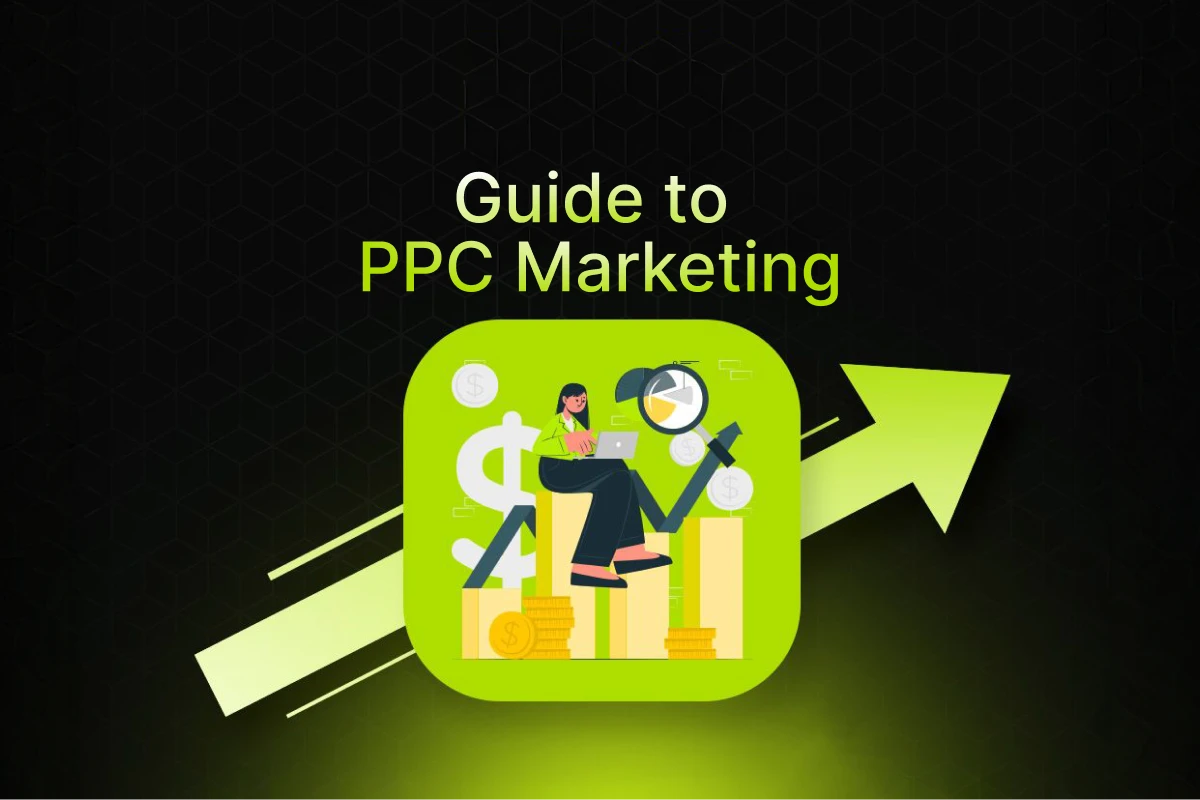
In the ever-evolving world of digital marketing, businesses are constantly searching for ways to gain visibility, drive traffic, and convert leads faster. One of the most effective methods to achieve this is through PPC advertising in digital marketing. Whether you’re a startup or an established brand, understanding PPC marketing can significantly improve your reach and revenue.
This PPC marketing guide will walk you through everything. From the basics to advanced tactics— so you can run highly targeted, cost-effective campaigns.
What is PPC Marketing?
PPC stands for Pay Per Click marketing, a model where advertisers pay a fee each time their ad is clicked. Essentially, you’re buying visits to your site instead of earning them organically. The most common platforms include Google Ads and Bing Ads, though social media channels like Facebook and LinkedIn also offer PPC options.
Benefits of PPC Advertising
Unlike SEO, which takes time to show results, PPC advertising strategy can drive traffic instantly. The major benefits include:
- Immediate visibility on search engines.
- Highly targeted reach based on location, demographics, and interests.
- Measurable results using built-in analytics.
- Control over budget and bids.
With the right PPC campaign management, businesses can achieve faster ROI and boost brand awareness in competitive markets.
Types of PPC Campaigns
When exploring types of PPC campaigns, you should consider:
- Search Ads – Appear in search engine results when users search for related keywords.
- Display Ads – Visual banners on partner websites.
- Shopping Ads – Product-focused ads for e-commerce businesses.
- Video Ads – Typically on YouTube and other video platforms.
- Remarketing Campaigns – Re-engage users who have interacted with your brand before.
How PPC Works
The process involves advertisers bidding on keywords. When a user searches for that keyword, an auction determines which ad appears. Factors like ad quality score optimization, bid amount, and relevance affect placement. A higher ad quality score usually means lower costs and better positions.
Google Ads Tutorial for Beginners
If you’re learning how to run PPC ads, Google Ads is the best place to start:
- Keyword Research: Use tools to find high-intent search terms.
- Campaign Setup: Select campaign type, set daily budget, and define targeting.
- Ad Creation: Write compelling headlines and descriptions.
- Conversion Tracking in PPC: Ensure tracking is set up to measure success.
PPC Marketing Strategy for 2025 and Beyond
PPC marketing 2025 is leaning towards AI-powered bidding, automation, and audience segmentation. To stay competitive, your Google Ads strategy should:
- Focus on keyword bidding strategies that match search intent.
- Leverage automation for smarter bidding.
- Personalize ads for better engagement.
Key PPC Tactics for Better ROI
To make the most of your campaigns:
- Negative Keywords List – Exclude irrelevant search terms to save money.
- Geo-Targeting in PPC – Target specific regions to increase relevance.
- A/B Testing PPC Ads – Experiment with headlines, calls to action, and landing pages.
- PPC Landing Page Optimization – Ensure your landing page is fast, mobile-friendly, and conversion-focused.
- PPC Remarketing Tactics – Bring back past visitors with personalized ads.
Advanced PPC Management
PPC management services can help businesses handle complex campaigns, saving time and improving efficiency. These agencies manage everything from bid adjustments to ad quality score optimization.
Additionally, consider white label PPC services if you run a marketing agency and want to offer PPC without building an in-house team.
Advanced PPC Management
Selecting the right tool can make campaign management easier. PPC software comparison should consider factors like automation capabilities, reporting features, and integration with analytics platforms. Popular choices include Google Ads Editor, SEMrush, and Optmyzr.
PC Audit Checklist
To ensure your campaigns are running optimally:
- Check targeting settings.
- Review keyword bidding strategies.
- Optimize ad creatives.
- Remove underperforming keywords from your negative keywords list.
- Analyze conversion tracking in PPC for accuracy.
Finding the Best PPC Agencies
When searching for the best PPC agencies, look for proven results, transparent reporting, and experience in your niche. Good agencies will tailor their approach to your brand’s goals and budget.
Measuring PPC Success
Metrics like ROAS (Return on Ad Spend), click-through rate, cost per conversion, and quality score help evaluate performance. Remember, PPC is not about driving traffic alone. It’s about attracting the right audience and converting them.
A well-planned PPC marketing guide isn’t just about clicks; it’s about creating a seamless journey from ad to conversion. By combining a solid PPC advertising strategy with continuous testing, optimization, and analysis, you can outshine competitors and get the most from your budget. Microsoft, LinkedIn, Amazon, Etsy: they’re all using it.
Whether you manage your own ads or rely on PPC management services, understanding the nuances of how PPC works, and leveraging tools like PPC software comparison or incorporating use of Google Analytics 4— these will help keep your campaigns ahead of the curve.